It’s time to ring in a new year1 and say goodbye to the old! As I have the honour2 of writing the final Hot Off the Shelf post of 2022, I thought it’d be nice to have all the HOTS writers share their top three reads for the year. Or, to be more accurate: their top two reads for the year and then an open category for the 3rd, so long as it’s available at VPL. One of us chose a book, two chose albums, and one chose a game3. We also have a special Editor’s Choice category from our lead, Heather.
To make this more interesting than a simple list of items4 I followed up my colleagues’ choices with some questions, the answers to which you’ll find below. Like an answer, but want some follow-up? Ask in the comments! We’re all going to be monitoring this.
Along with each writer’s choices and answers to the questions, you’ll be getting my first thoughts on seeing/researching each title to help inform where my questions came from5.
First up: Karen
Her Choices (and my thoughts):
- Indelible City: Dispossession and Defiance in Hong Kong by Louisa Lim (That’s a lot of history I know little about, how do I approach this?)
- It’s a tie between Silver, Sword and Stone: Three Crucibles in the Latin American Story by Marie Arana and Magdalena: River of Dreams by Wade Davis (More biographies, I’m seeing a thread here.)
- A three-way tie, or maybe just I like them as a grouping: The Mosquito: A Human History of Our Deadliest Predator by Timothy C. Winegard; Swamplands: Tundra Beavers, Quaking Bogs, and the Improbable World of Peat by Edward Struzik; and Super Fly: The Unexpected Lives of the World’s Most Successful Insects by Jonathan Balcombe (More non-fiction, and about things most of us would rather not deal with.)
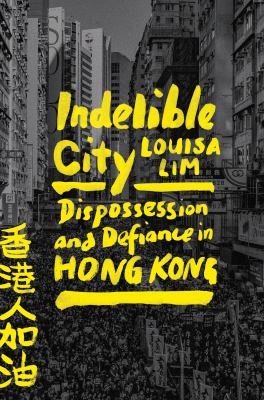
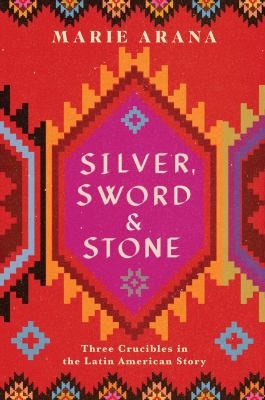
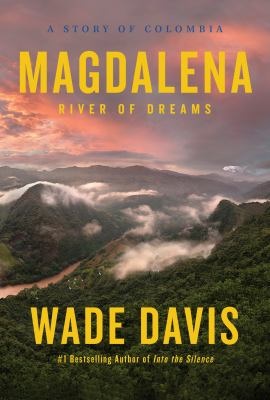

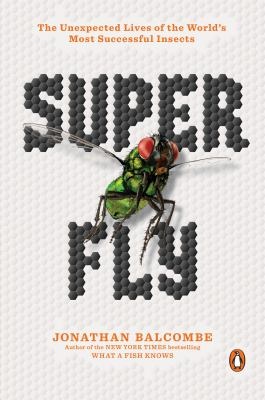
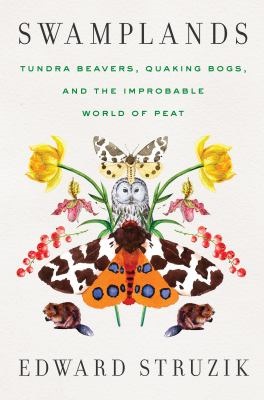
Overall:
In your bio you mention being omnivorous with library materials, and yet your list for this year consists entirely of non-fiction covering a variety of topics. Was that a conscious decision?
Good question! This wasn’t a conscious decision, but these were definitely the books that have hit hardest for me this year when looking back at my “read” list for 2022. I think it comes down to what happened to have been published this year/last year/recently and acquired by VPL late last year or into this year.
Indelible City:
What made this your top pick for the year?
This is 100% just personal interest, because I’ve had difficulty following along with the news for HK due to my own illiteracy and ignorance as far as the history of it is concerned, the history of HK obviously not being something that’s taught in the Canadian curriculum (having absorbed officially neither version of events, yet having absorbed some, somehow, via osmosis, it was interesting seeing how much of what I’d absorbed solely via osmosis mapped onto reality). So reading about HK written by someone who grew up in HK, yet is still so apart from it due to the nature of her being and upbringing, which is entirely different but similar to how I feel about it myself, probably contributed to why it spoke most to me.
Silver, Sword and Stone/Magdalena:
A common thread between these books, and Indelible city, is that they’re biographies of places told through the people or features. Is this a favourite topic of yours? Or did reading one lead to seeking out more.
I wouldn’t really say so, no. If asked, I would probably say I generally prefer less personal tellings of places – Silver, Sword and Stone was actually not as much a B&M as it’s categorized as, which I appreciated, and ditto with Magdalena (for which the parts I cared least about were actually the parts about the author). The exception I’d say was for Indelible City, for the reasons mentioned above.
The Mosquito and Super Fly:
Most of us want nothing to do with bugs, especially not mosquitos or the ever-irritating fly. Has reading how these creatures have affected human history and industry made you any more sympathetic to them?
My dislike of mosquitoes is matched only by their love of me, so it was lovely reading how they contributed to the downfall of so many greater folks than I! At the very least, I’m in good company (and also terrible company in equal measure, since mosquitoes are equal opportunity predators, but let’s not think of that). I’ve found flies to be quite beautiful in certain lights for many a year now, to be perfectly honest! They can be annoying, sure, but so are weeds, which are just plants growing in the wrong place. And I absolutely love that story about maggot therapy: “there was practically no bare bone to be seen and the internal structure of the wounded bone as well as the surrounding parts was entirely covered with the most beautiful pink tissue one could imagine.” QTD. IN SUPER FLY, BALCOMBE, 254. That being said, I will still absolutely try to take down a fly or mosquito in the wrong place (read: in my space). We can coexist in peace, iff we respect each others’ boundaries.
Swamplands:
As with buzzing, biting creatures, swamps don’t tend to feature favourably in the human psyche. We may recognize their importance, but few people want to spend much time in them. Do you feel reading Swamplands has given you a new appreciation for these squishy, smelly places?
Do we recognize their importance, really? I don’t think I did before reading Swamplands! That could just be my ignorance slipping through there, but I didn’t realize how ecologically important they were, nor how in danger they were – I suppose it’d be more accurate to say that I simply didn’t think about them (much) at all. I loved the idea of their weirdness and the idea that you could just slip in and die in there and no one would probably ever find you ever again, even before, but to know that they actually serve a purpose and also that the peat harvested from them has been so important throughout history has added a layer of appreciation to how I see bogs, swamps, fens, and more for sure. Perhaps they feature unfavourably in our psyche because they are unfamiliar, and we simply don’t know how to safely interact with them?
Next up: Alyssia
Her Choices (and my thoughts)
- How to Read Now by Elaine Castillo (I ended up reading the preview of it from overdrive since the title caught my attention)
- When We Lost Our Heads by Heather O’Neill (I had no idea how to approach a question about the book’s story for this, so generic it is)
- Renaissance by Beyoncé (Oh dear, I’m going to make a fool of myself for not knowing this album, aren’t I? Generic question time (again)!)
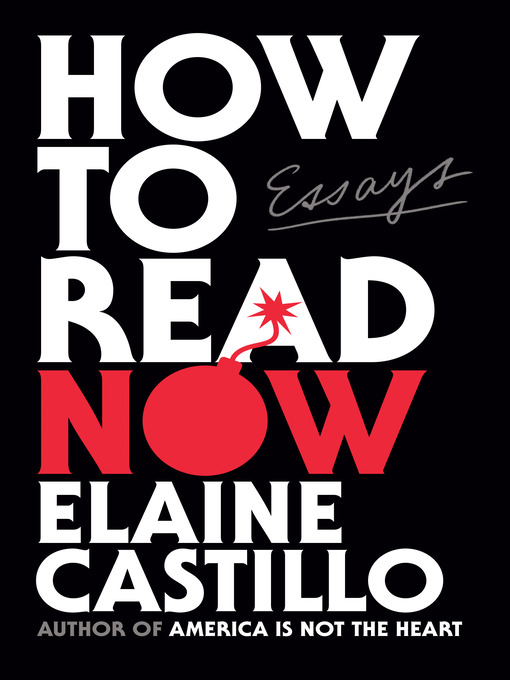
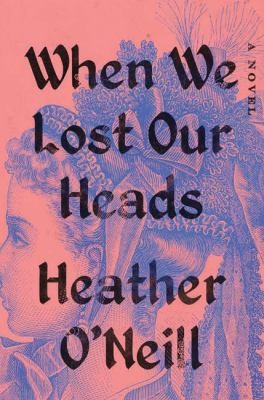
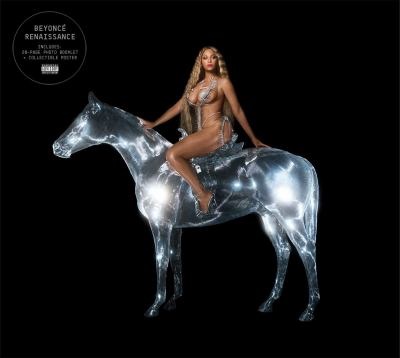
How to Read Now:
Has reading this changed your reading habits? I’m using the author’s broad definition of reading when asking this.
The title of this book is a bit misleading, as it’s really a collection of disparate essays about all sorts of media-related topics. They don’t all fit together on an obvious level, and some are much stronger than others (or perhaps it’s more accurate to say, some are more interesting depending on your familiarity with a given essay’s topic), but broadly they all critique the lens through which we view media. For example, one of my favourite essays is “Autobiography in Asian Film, or What We Talk About When We Talk About Representation”, which dives into Castillo’s strong love for Wong Kar-wai’s films. Even if I don’t always agree with her takes, Castillo writes persuasively and passionately (her epic take-down of Joan Didion, for example, is still captivating to me as someone who doesn’t feel strongly one way or another about Joan Didion). Castillo presents new ways of thinking about elements of pop culture and media we take for granted, which I think is highly valuable for reading (or watching, or even living) with an open mind.
When We Lost Our Heads:
You’ve kept to a single fiction book on your top three, what about When We Lost Our Heads helped it claim this honour?
The truth is I read mostly fiction books, but I find there are only 2 or 3 a year that really stick with me. When We Lost Our Heads gets my top spot because I read it feverishly, and came out of it in a fog—you know when it’s hard to re-adjust to real life? I enjoy Heather O’Neill’s books for the reasons others might dislike them: there’s a griminess to her writing, and she’s always preoccupied with some seedy underbelly or other. You come away feeling like you need a shower. I don’t know how she does it! When We Lost Our Heads is about two childhood friends in 1800s Montreal whose lives diverge drastically, one living a pampered life and one ending up in poverty. All through their lives, an intense obsession with each other remains. I love stories about dysfunctional people whose big, uncontainable emotions ruin not only their lives but the lives of those around them. Fiction allows us to play with our ugly sides, the sides we wouldn’t want to touch in real life. And Heather O’Neill knocks it out of the park with this one, fearlessly diving into themes of class, desire, and power through two very different women.
Renaissance:
To place an album on your 2022 top three list is high praise. Is there a favourite song that’s earned it this placement? Or is it a case of the whole being more than the sum of its parts?
What can I say about Renaissance that hasn’t been said a million times? I am admittedly a Beyoncé fangirl, so I was primed to love this latest album, but she surprised us by leaning full-tilt into a high-tempo, celebratory dance album. After two years of a pandemic, she gives us something joyful. Her previous masterpiece Lemonade was a mix of genres from rock to hip-hop to country, and Renaissance is a mix of genres within the dance genre: 90s club music (“Break My Soul”), 70s funk (“Cuff It”), disco (“Virgo’s Groove”), dancehall (“Energy”), and even hip-hop/R&B mixed with gospel (“Church Girl”). The album as a whole is what elevates it to my favourite of the year (I admit, when she first dropped “Break My Soul”, I wasn’t entirely convinced. But seeing how it fits alongside the other songs changed my mind). As for best songs on the album? It would be redundant at this point to praise “Cuff It”, considering the TikTok fervour around it, but it’s objectively the best one. However, “Alien Superstar” has an entrancing quality that makes it my most played. It’s super weird, and I can’t get enough of it.
Overall:
Any honourable mentions that you think our readers should check out? Rapid-fire titles or links are fine here.
A: Absolutely! For historical fiction, I enjoyed Briefly, A Delicious Life by Nell Stevens, about the writer George Sand and her family, as well as her relationship with Frederic Chopin. Another genre I enjoy is “broke messy party girl trying to survive in the city” (a la Jean Rhys, or Amor Towles’s Rules of Civility), and Toronto-based author Marlowe Granados gives us a modern take with Happy Hour. And I’m still thinking about AMC’s Interview With the Vampire adaptation, so if anyone wants to yell at me about it, please do.
Finally: Sumayyah
Her choices (and my thoughts):
- Ariadne by Jennifer Saint (Hey! I know this one!)
- The Bear and the Nightingale by Katherine Arden (I need to get around to reading this)
- Maxident, a mini album by Stray Kids (Another album I know nothing about… how do I make this question different from my last generic question?)
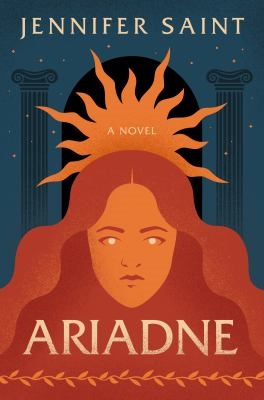
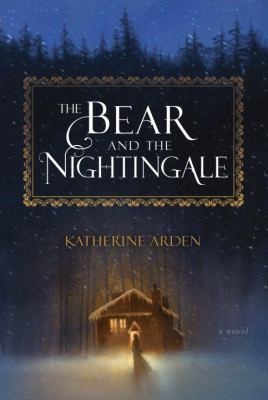
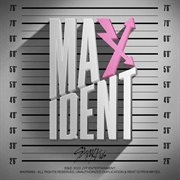
Ariadne & The Bear and the Nightingale:
These are both novels rooted in mythology but taking their tales in their own direction. Ariadne showing a more feminine approach to the Greek Mythos, and Nightingale weaving Russian folklore throughout. Going in, where you more familiar with one mythos over the other? And I have to ask if you, like me, are drawn to these kinds of novels that use existing myths as a starting point for a new tale.
I was definitely more familiar with Greek mythos of Ariadne, having gone through a Greco-Roman myth obsession phase in middle- and high-school that I haven’t yet grown out of. But that developed into a love of fairy tales, folktales, and mythos of different regions over the years, so I know a little Russian folklore, and specifically about Vasilisa the Fair, who shares the same name and similar adventures to the Vasilisa of The Bear and the Nightingale.
I do indeed adore retellings and adaptations of different tales. I love to see how the world or the characters or the adventures (or all three!) can be approached or interpreted in new ways while still maintaining familiarity. I love the new perspective or new depths or new layers such adaptations provide. It’s like eating a favourite meal and discovering more flavour in it! Delightful and delicious.
Maxident:
And another album makes the list! As with the first one this is outside of my genres but I think I can come up with something slightly more interesting to ask for the benefit of our readers this time: If this album was someone’s first introduction to K-pop would you recommend starting with a certain song?
Oooh this would be an interesting first K-pop album, as to my mind this is Stray Kids’ most experimental album yet where—secure now as million-sellers and award winners—they seem to feel more comfortable trying out different genres and styles (camp! love songs! drill!). Many fans responded to it with uncertainty and even dislike, but I really loved this album. It’s clear they had a lot of fun with it, and it reminds me of their mixtapes from when they were just starting out, before they’d even debuted, and it flows conceptually and musically really well from their previous two albums. But I digress!
If this was someone’s first K-pop album, and they had no exposure to Stray Kids, I’d recommend listening to ‘Chill’ first, as it’s not too experimental, sounds the most like other songs they’ve done (so it would be a great intro to the band’s general style), and it showcases their different vocals, their fun, and their youth!
Bonus question:
What K-pop album would you recommend as a starting point for the genre?
Oh man, tough question. Honestly, my answer would vary depending on who I’m talking to and what their musical tastes are. But…my first album that got me back into K-pop (in 2020, having been last into K-pop circa 2014) was Stray Kids’ IN Life. As my favorite band, and one of my fave albums, I have to recommend it. It has the best variety of songs, showcases all the different skills the band has, and is honestly just a bop and a half.
Now how about my own choices for the year: Adam
- The Untold Story by Genevieve Cogman
- The Starless Sea by Erin Morgenstern
- Xenoblade Chronicles 3 for Nintendo Switch
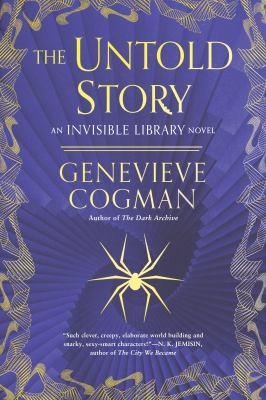
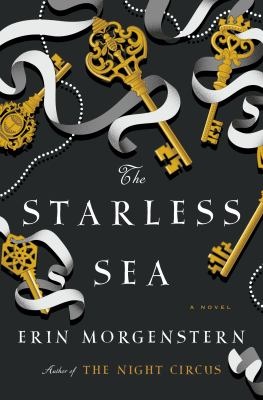
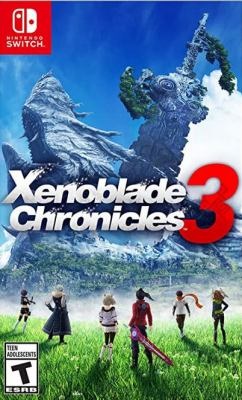
I put forward the option for my fellow writers to get some revenge and ask me questions, but I think I’d pawned off enough of this post on them already, so I’m afraid you’re just getting my thoughts on these.
The Untold Story & The Starless Sea
I’ve written about this series before, putting the first book and series namer, The Invisible Library, in my Fantastic Fictional Libraries post. The Starless Sea would also have made that post, but with it being part of the April Reading Challenge, I felt it best to leave it off. However, I’m not letting past posts sway my decisions for my top picks for the year, so The Starless Sea is taking its rightful place. As with Sumayyah’s first couple of books, I’ve put these under one banner because there are strong links between them: both are books about books, are firmly in the fantasy genre, and see libraries as mystical, powerful places.
The Untold Story is the end of an eight-book series, bringing the story of interdimensional librarian Irene and her companions, a dragon prince and a sherlock expy, to a close. These fast-paced, worlds-in-the-balance reads and plays with different tropes suitable to Irene’s status as a spy-turned-diplomat in each book. Along the way, there have been prison breaks, world-ending plots by eldritch horrors, a murder to solve, and even a museum heist. The Untold Story represents the series in its place on my list, as you very much want to read them in publication order to get the complete reading experience. So what has earned the series the honour of being my top pick this year? Probably where I am in life right now: a recent(ish) Master of Information grad who joined a new library system and is carving out my niche here. Reading stories of a librarian whose work quite literally saves worlds from destruction perhaps fills a bit of a fantasy that my work will eventually be able to do the same. Or at least keep someone from a life of not reading fantastic books.
The Starless Sea slows things down a bit compared to my top pick. Sure, the story has action and intrigue. And parts will leave you breathless as you eagerly flip through the pages. Still, for the most part, the book takes its time exploring the titular Starless Sea, a vast underground library on the shores of a sea of honey, alongside its protagonist Zachary. The book is a fantasy and a love story, or rather, multiple love stories. It’s an ode to books and libraries, it’s Zacharay’s burgeoning relationship with Dorian, and weaving through it all is the love between Time and Fate, set up at the start for a magnificent payoff at the end. This book claims my #2 spot for the year because it expresses the love for books and stories and reading that helped shape who I am in a far more eloquent way than I will ever be able to put to paper. Fellow book lovers, you owe it to yourself to give this one a go.
Xenoblade Chronicles 3
Talk about a change in tone; I apologize for any whiplash this choice brings you, readers. Though it should come as no surprise that I, a fan of multi-novel fantasy series or long standalone fantasy books, would also be a fan of 100+ hour RPGs. If something grabs my attention, I want to sit with it for as long as possible. I won’t wax poetic over this choice, as I’m sure I’ve already lost some of you, but for those still reading, this made my open slot for this list for a few reasons. First, it tells a compelling worlds-in-the-balance story; you know from above I’m a fan of those. Second, the characters we spend those 100+ hours with are as fleshed out as any characters in the novels above, making them more than just vessels for player control. You want to follow every side quest and read every extra bit of dialogue to see how they react to different situations. And third: this is probably the best Xenoblade combat system of the three mainline games (I can’t comment on X).
Editor’s Choice: Heather
The Candy House by Jennifer Egan

Is today’s social media content authentic enough to you? How would you like having the power to “upload” any memory you’ve ever had in exchange of the access to the others’? In this inventive, deeply moving novel, the 2011 Pulitzer Prize winner Jennifer Egan, offers her timely response to our questions on authenticity, privacy, and meaning in a turbulent world.
And that brings us to the end of the VPL Year in Review post. I hope you’ve enjoyed reading the team’s top picks! Ask any follow up questions you have in the chat. Happy New year!
1 and new reads
2 read: happened to be in the right spot in the scheduled order
3 no points for guessing who
4 and to spread the work around
5 which just means I’ve found a way to work these footnotes in the post itself
To my footnote readers, please thank Sumayyah for showing me the footnote tutorial that led to their upgraded functionality.